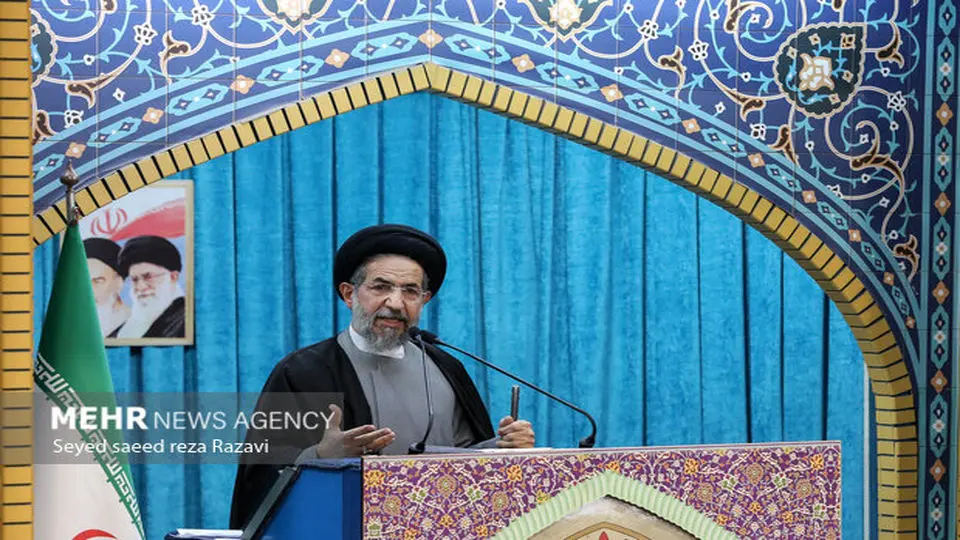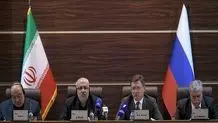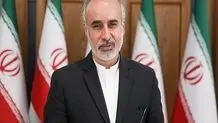Senior cleric:
Navy 86th flotilla showed Iran capacity to intl. community
Provisional Leader of Tehran Friday Prayers says that the 86th flotilla of the Iranian Navy showed the country's unique capacity to the international community.

MEHR: Provisional Leader of Tehran Friday Prayers says that the 86th flotilla of the Iranian Navy showed the country's unique capacity to the international community.
Speaking at the sermons of Friday prayers held at the University of Tehran, Tehran's interim Friday prayers leader Hojjat-ol-Islam Mohammad Hassan Abu Torabi Fard praised the recent accomplishment of the around-the-world mission by the Iranian Navy 86th flotilla
Traveling 65,000 kilometers and crossing the equator 4 times, showed the knowledge, expertise, bravery and unique capacity of Iran's Navy to the international community, he stressed.
"Sea power is a set of sea-related capabilities that can control waters and vital resources at sea and prevent enemies from accessing them. The goal is maritime supremacy, and today the navy of the Islamic Republic is in this position," the senior cleric underlined.
Elsewhere in his remarks, Abu Torabi Fard touched upon the historic event of the liberation of South Lebanon from the Israeli regime's occupation in the year 2000.
Stressing that the victory of the Resistance in 2000 can be considered the starting point of the Zionist regime's chain of defeats, the senior cleric noted that this development is undoubtedly the main outcome of Iran's foreign policy.
Abu Torabi Fard also hailed the current Iranian administration for strengthening ties with neighboring countries.
The West, especially the United States, is facing international deadlocks in the political, economic, security and cultural fields, he said elsewhere in his remarks.
He also considered economic diplomacy to be one of the most important principles, saying that it should be insisted upon because, in the last half-century, the countries' economic power has played an essential role in foreign, military, and security policies, and the economy has become the main pillar of the countries' foreign policy.



